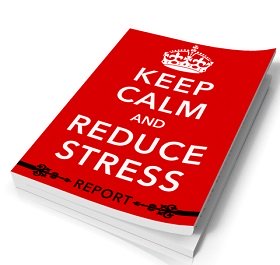How Does Stress Affect Health?

How does stress affect health? Stress affects our health in a number of different ways, both physically and emotionally. The types of stress affect our health differently. Our bodies were built with a stress response system that works best handling an immediate threat or danger. It acts like an alarm system, triggering a response indicating we feel frightened or threatened. During stressful events, our body releases a hormone which activates our body's defense mechanisms causing our heart rate, blood pressure and and breating rate increase. Our muscles become tense and pupils dilate. When experiencing long-term stress and the effects on our body is not so good.
So when we answer the question, "how does stress affect health?" it involves looking at a period of prolonged stress to see different results. With prolonged stress, the quantity of hormones secreted during the stress-response over time become depleted. In other words, the stored nutrients, vitamins, minerals, enzymes, and balancing hormones are used up and can no longer help the body limit the physical effects of the stressor.
We begin to see that when answering the question, "How does stress affect health?" we are likely to see negative effects. As continued stress causes the body to use up needed nutrients and supplies to keep the body working properly, the body systems begins to become out of balance. It becomes exhausted. High blood pressure, heart attacks and strokes are all possible outcomes of long term stress.
We don't allow our bodys time to recover from the stressors. That is one contibuting reason that heart disease is still the number one killer of American women. Our bodies were not built for being in a state of constant stress-response.
Two Things to Do to Lower Stress.
- You must recognize that you are stressed.
- You need to identify the sources of your stress.
Discovering that you are stressed is not so difficult for most people. Aside from the possible increase in pulse rate, there are other signs that you are stressed. For example, body muscle aches, a racing heart, unexplained emotional outbursts, changes in eating habits, chronic exhaustion and increased infections are indicators of the effects of stress.
 Why Zebras Don't Get Ulcers, Third Edition | "Robert Sapolsky's acclaimed Why Zebras Don't Get Ulcers, combines cutting-edge research with a healthy dose of good humor and practical advice to explain how prolonged stress causes or intensifies a range of physical and mental afflictions. When we worry or experience stress, we usually do not turn off the stress-response quickly and let the effects linger. He offers insights into how those responses can be controlled. |
"How does stress affect health?" is an important question to answer. Begin by noticing any symptoms of stress you may be experiencing. Stress can be harmful to your health and its prolonged effects definitely impact negatively on your body. It can be a contributor of up to 80 percent of all illnesses. But it is mostly "a lifestyle issue" for most people. How does stress affect health for you, often depends on your lifestyle. Don't let the effects of stress damage your health. A goal should be to eliminate the negative health aspects of anxiety, and develop stress management strategies that work for you and your lifestyle.
Stress and High Blood Pressure
The Physical Effects of Stress: How the Body Reacts
Reader Favourite!
Effective Stress Management Listen to Your Body
Join Calm Starts Here, and receive FREE How to Get a Good Night's Rest and Stop Worrying.
Share this Page on SheToldMe.com
Become a FaceBook Fan








